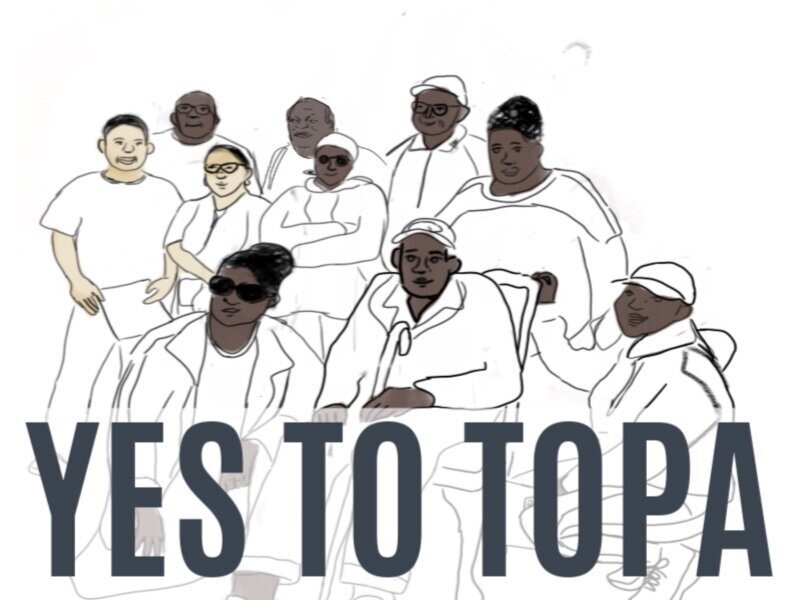
FAQs for Landlords
Does TOPA force me to sell my rental property before I want to sell it?
No, TOPA does not force an owner to sell before they are ready. When you choose to sell, TOPA provides a process for existing tenants to remain in the property they have been renting from you by purchasing it themselves or assigning their purchase rights to a qualified organization. If tenants/qualified organizations do not respond or waive their purchase rights, the owner can proceed to sell the property on the market.
Does TOPA control the price owners can sell their property for?
No. Owners receive fair market value for the sale of their property under TOPA. The owner has the right to accept or reject the initial offer they receive from tenants or a qualified organization. If an owner rejects the initial offer and subsequently receives an offer from another buyer they want to accept, then tenants/qualified organization (whoever made the initial offer) have a certain amount of time to match the offer and purchase the property. TOPA adds time to the process but does not control the sales price.
Will TOPA prevent me from transferring my property to my family?
No. TOPA exempts transfers, even when money is offered, between immediate family members, including spouses, domestic partners, parent and child, siblings, grandparent and grandchild.
Will TOPA prevent me from giving my property to my heirs?
No. TOPA does not interfere with transfers of property to one’s heirs upon the death of the owner.
Are there exemptions to TOPA for emergency situations?
Yes. There is an exemption for small property owners who need to sell property quickly for a health care emergency. This exemption is limited to an Owner who owns only one Rental Housing Accommodation with five or fewer rental units.
The language of the exemption currently reads, "A transfer of a Rental Property having no more than five Rental Units made for the purpose of paying for imminently necessary health care expenses of an Owner of the Rental Property, or any such expenses incurred by a spouse, domestic partner, or child of any Owner (“Eligible Persons”), where requiring the Owner to comply with the requirements of this Chapter would result in financial hardship to an Eligible Person. For purposes of this subparagraph only, “Owner” shall be limited to a natural person having an undivided interest in the Rental Property of at least 50%."
What property types are exempt from TOPA?
Inclusive of changes that were introduced for a Council Work Session on January 27, 2022, here are the proposed exemptions:
1) Owner-occupied Single Family Homes, inclusive of an ADU and/or JDU.
2) Non investor-owned Single Family Residences inclusive of those with an ADU and/or JADU, if that is the Owner’s only rental property in Berkeley.
3) Owner-occupied duplexes if (a) one of the units is the Owner’s principal residence and (b) the property is the Owner’s only rental property in Berkeley.
Can I market my rental property for sale before complying with TOPA?
No. TOPA requires sellers of rental properties to give existing tenants and qualified organizations the exclusive opportunity to make an offer before marketing it to other buyers. However, a seller may choose to notify the tenants of intent to sell as early as possible, and begin to find an agent and prepare the property for the market concurrently with awaiting a response from tenants and qualified organizations in the statement of interest and offer phases.
Who would I have to notify that I intend to sell my rental property and how long would they have to respond?
You would notify existing tenants and a list of qualified organizations vetted by the City. You would also file copies of the notices with the City. Tenants and qualified organizations would have time to submit a statement of interest (see timelines and timeline FAQs). If the tenants or qualified organizations do not respond, you can proceed to sell your property on the open market. If the tenants or a qualified organization expresses interest, they have time to make an offer. If they do not make an offer, the TOPA process ends and the seller is free to proceed to sell the property on the market.
If I accept the offer from tenants or a qualified organization, what happens?
You enter into contract. Your contract should include a financing contingency that complies with TOPA timelines for securing financing, giving the tenants/qualified organization sufficient time to secure financing and close the deal.
Do owners receive any monetary benefits for participating?
Yes. TOPA provides a refund of most of the City’s portion of the Real Property Transfer Tax to sellers who accept an offer from tenants or qualified organizations at the Right of First Offer stage. This refund could represent thousands of dollars in savings.
If I reject the initial offer from tenants or a qualified organization, what happens?
You’re then free to solicit offers on the market. If you receive an offer you would like to accept, or make an offer that another buyer would like to accept, you would need to notify the tenants or qualified organization (whoever submitted the initial offer) and give them an opportunity to exercise their Right of First Refusal to match the offer (see timelines and timeline FAQs).
How long will it take me to sell my property under TOPA? How were these timelines determined?
Click here for the timelines, which are categorized by different phases of the purchase process. These timelines are based on research and were designed to give tenants reasonable time to organize, submit an offer, secure financing, and close a deal in a competitive market, while also taking into account the sellers’ needs.
How will 1031 Exchange properties be handled in TOPA?
Nothing in TOPA prohibits a seller from pursuing a 1031 exchange. However that seller must still comply with TOPA & the timelines afforded to tenants/QOs.
How will foreclosures be handled? And how will probate sales be handled?
TOPA does not apply to foreclosures and probate sales.
